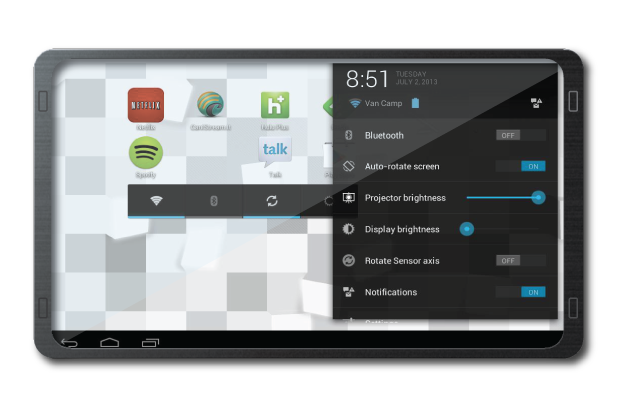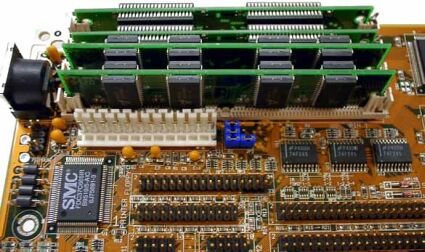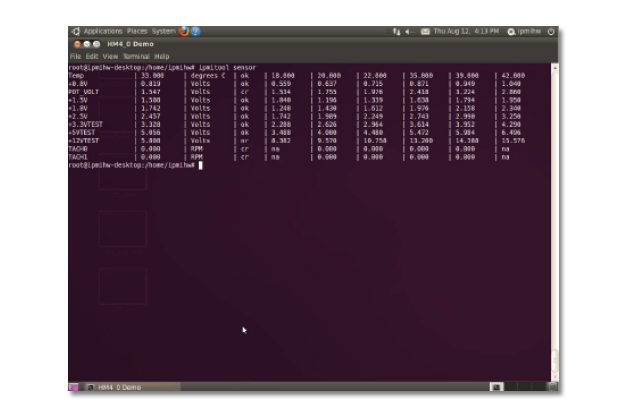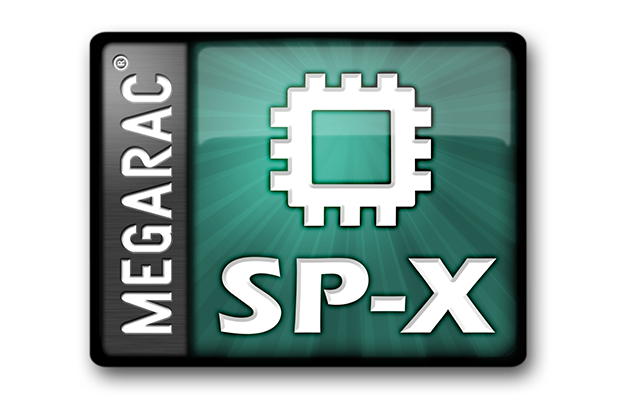A Reintroduction To American Megatrends (AMI)
If you have been in the tech industry for a while, or just looked closely at your motherboard, you have probably heard of American Megatrends, better known as AMI. The company is known around the world for its development of BIOSes, which are used on the vast majority of motherboards, but because of its somewhat behind-the-scenes role in the industry, people tend to not know too much more about the company.
The Firmware Business
Over the last 30 years, AMI has been the world's leading BIOS provider. AMI stated that one of the company's first major customers in 1985 was a relatively new company known as PC Limited, which would go on to become Dell Computer Corporation in 1987. This partnership helped AMI secure its position as the leading BIOS provider.
AMI has since worked with numerous OEMs in the industry, offering businesses customizable BIOSes to fit their needs. When a new chipset is created, AMI first takes a reference motherboard and designs a BIOS fully capable of taking advantage of the features inside of the chipset. After that, more advanced features are added, such as an improved user interface or diagnostic tools. An example of one of the more useful features that can be added to the firmware is the ability to upload a backup image of the computer's HDD at the time of failure to avoid data loss.
After the BIOS has been created and the extra features developed, OEMs can then license the firmware from AMI. In order to scale the BIOS for use on both low-end and high-end systems, OEMs can choose how many of the extra features they want included in the deal. For low-end boards, the OEM can license just the basic BIOS without any of the extra features, whereas higher-end BIOSes naturally have more features. From that point, the OEM can customize the BIOS to their needs before installing it on a motherboard, or they can pay AMI to customize the firmware for them.
We know AMI best for its work on motherboard BIOSes, but the company also produces firmware for several other devices such as smartphones and tablets. AMI also produces firmware and drivers for microcontrollers. Most prominently, the company has been involved with the creation of drivers for USB devices and USB controllers.
Android
Recently, with the growing popularity of mobile devices, AMI has been producing Android firmware for use on smartphones, tablets, Android TV boxes, and other similar devices. This includes its AMIDuOS software, which we have covered in the past, as well as its Android BSP (Board Support Packages) targeted at app developers, and its AMI Adept software, which is a version of the Android OS capable of running on a "bare metal" x86 platform without the need of any additional software.
Innovation
Get Tom's Hardware's best news and in-depth reviews, straight to your inbox.
Over the years, AMI has helped to innovate essential changes to computer technology. According to an AMI representative, in the late 1980s, AMI developed the first motherboard to support L2 cache, which significantly improved performance by reducing CPU stalls while waiting for data to be loaded from the system RAM. Although L2 cache is integrated into nearly every CPU on the market today, the increased performance that motherboards containing L2 cache demonstrated the importance of having a small dedicated amount of fast memory, and was an essential first step towards it being integrated into processors.
AMI also had a hand in the development of the Unified Extensible Firmware Interface (UEFI), which is considered a more secure, user-friendly, and feature-rich evolution of the conventional BIOS.
The MegaRAC Business
Although end-users aren't familiar with it, AMI has had a significant presence in the server market with its MegaRAC business, which focuses on remote management tools. One of its server products, the Intelligent Platform Management Interface (IPMI) Platform Management (PM), is a firmware solution that contains a built-in Real-Time Operating System (RTOS), which permits remote diagnostic, data recovery, data management and power control.
For more powerful server management, AMI also offers its MegaRAC SPX firmware package, which contains both firmware and software elements. Unlike the IPMI PM solution, which contains some remote access tools in addition to a functional OS for direct system control, the SPX firmware package provides a more robust Web interface and a greater amount of control over the system.
Although its server business mostly focuses on firmware, much like its BIOS business, the company also produces a number of Enclosure Management Controller (EMC) ASICs, which are used to monitor SSDs and hard drives in order to detect when a drive is about to fail.
AMI claimed that its server business has been highly successful, and that it's the area which AMI is trying the hardest to grow with the development of new remote management tools.
And Now You Know AMI
Overall, AMI is a much more diverse corporation than many people probably realize. Although it primarily deals with firmware, it isn't limited to the BIOS and UEFI firmware about which we have known for years now. Instead, the company is active in a number of other markets, and is growing with the industry, stretching into new markets with its Android software while simultaneously growing its existing product lines.
______________________________________________________________________
Michael Justin Allen Sexton (or MJ) is a Contributing Writer for Tom's Hardware. As a tech enthusiast, MJ enjoys studying and writing about all areas of tech, but specializes in the study of chipsets and microprocessors. In his personal life, MJ spends most of his time gaming, practicing martial arts, studying history, and tinkering with electronics.
Follow Michael Justin Allen Sexton @EmperorSunLao. Follow us on Facebook, Google+, RSS, Twitter and YouTube.
-
g00ey Back in the day, the AMI BIOS was something everyone hated. The preferred BIOSes came from Award. The Award BIOSes were easier to configure, and had more overclocking and unlocking features than AMI. I don't know how things stand today, now since UEFI has come along, but I still have that same sentiment towards AMI and those OEM BIOSes feel very awkward even today, especially those "Dell" BIOSes.Reply -
CaedenV Neat article! Never was a fan of AMI. As others have stated here, AMI bios was one of the worst available in the custom PC world, but they had a big name in the prebuilt world as they were 'more secure'... or at least locked down properly.Reply
Would love to see more articles like this on other old companies that we don't think of on a daily basis! -
IInuyasha74 I've not encountered any problems personally with AMI BIOSes. The older ones I have used were relatively limited, but those were typically from an OEM like Dell or HP and limited by choice of the OEM. It is possible that the issues that you have previously encountered with BIOSes from AMI were because the OEMs chose to use the basic firmware package to save costs, but I cannot say for certain.Reply -
mctylr That's an overly positive puff piece that feels largely ripped from AMI's own corporate profile.Reply -
mctylr BTW the picture in the section about L2 cache only displays banks of DRAM SIMM modules, not L2 cache. The second photo from Tom's Hardware article, Socket 5: Tuning Old PC Systems (page 7 - Memory upgrade) actually shows L2 cache on the motherboard.Reply
-
IInuyasha74 Reply16904083 said:BTW the picture in the section about L2 cache only displays banks of DRAM SIMM modules, not L2 cache. The second photo from Tom's Hardware article, Socket 5: Tuning Old PC Systems (page 7 - Memory upgrade) actually shows L2 cache on the motherboard.
I am surprised you managed to find the original TH story where I got the picture, but you don't seem to know what SIMM modules are. Although they were used as system RAM at times in the 1980s, they were extensively used as L2 cache on motherboards using SDRAM for system RAM.
Also, this is not an overly positive puff piece, and doesn't come from the corporate profile. I had an interview with representatives from AMI and did additional research to write this article, and it is merely meant to discuss the various areas of business the company is involved in. I didn't review these products, nor say that we all need to go and use products with AMI firmware. -
gadgety Michael Justin Allen Sexton, rather than just regurgitating AMI's presentation it would serve you and your readers well with a bit of analysis and perhaps wider contextual scope.Reply -
IInuyasha74 Reply16904554 said:Michael Justin Allen Sexton, rather than just regurgitating AMI's presentation it would serve you and your readers well with a bit of analysis and perhaps wider contextual scope.
I believe you may have missed the purpose of this article, but care to elaborate? What type of analysis do you feel would be useful here? A comparison of AMI's firmware to it's competitors? That would be a good article, but that is not the purpose of this one.





